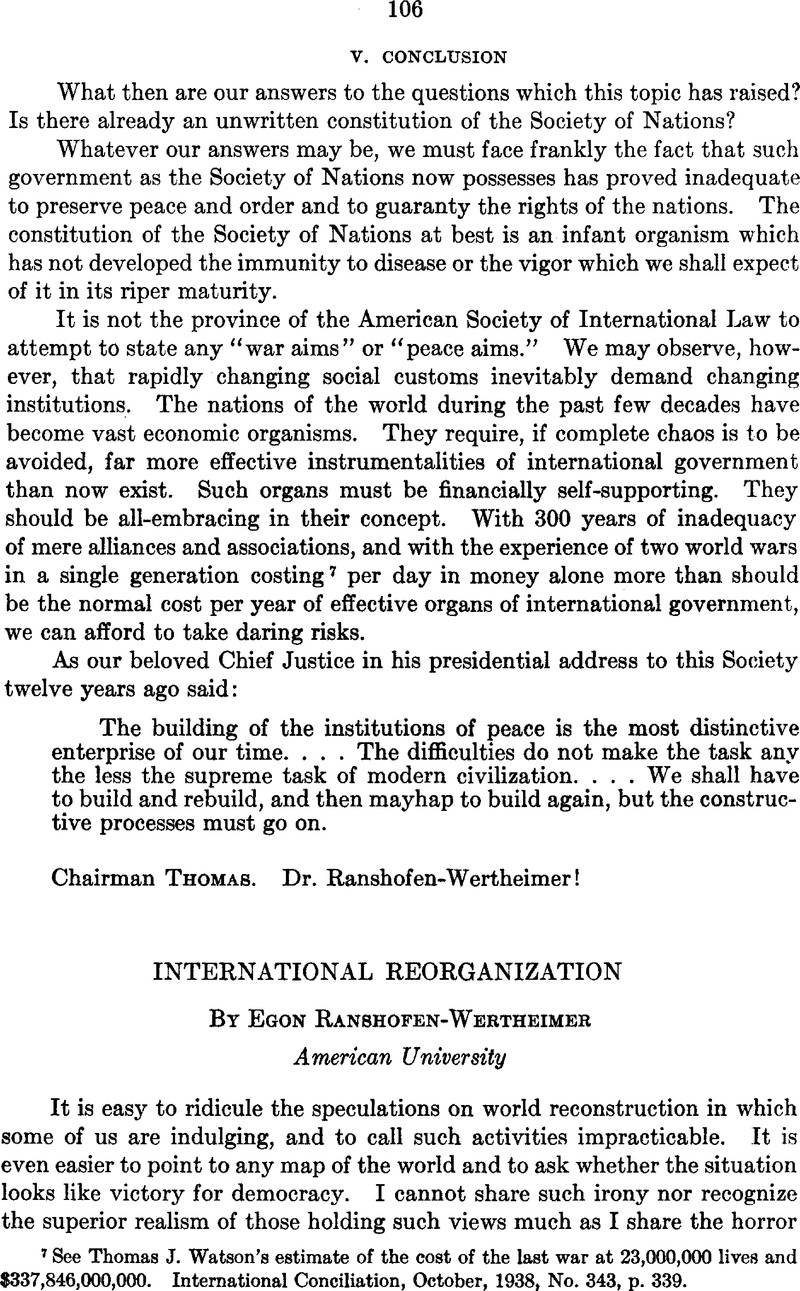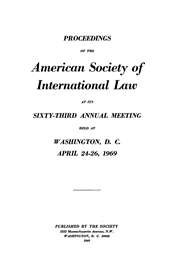No CrossRef data available.
Article contents
International Reorganization
Published online by Cambridge University Press: 27 February 2017
Abstract

- Type
- Fourth Session
- Information
- Proceedings of the American Society of International Law at its annual meeting (1921-1969) , Volume 35 , 1941 , pp. 106 - 120
- Copyright
- Copyright © American Society of International Law 1941
References
1 The above remarks refer chiefly to Hitler, the revolutionary. The consequences of Hitler, the conqueror, are also likely to be far reaching and in some ways permanent. This is of course chiefly due to the structural difference between totalitarian and imperialistic conquest of the old type which remained more or less a military occupation until peace was concluded. Hitler has not only abolished entire states, created new ones, has not only shifted frontiers, but his military conquests are accompanied by administrative and political measures far beyond anything usual in the recent past, like the transfer of whole population groups, the exchange of ethnological or racial minorities and similar measures. From the point of view of a future democratic world order, some of these territorial measures are frankly bad, some constitute the redress of real or alleged historical wrongs or of contested stipulations of the peace treaties of 1919-20, some are indifferent, some open to argument. Some, whether good or bad in themselves, were, however, accompanied by measures of such deep-reaching nature that any redress is likely to create as much new injustice and suffering as those occasioned by the original measures themselves. An attempt simply to cancel the wholesale transplanting of populations effected by Hitler in the east and in the southeast of Europe might, for instance, revive some of the pre-Hitlerian difficulties or illogical situations without creating new justice or real stability. This is a kind of problem likely to arise out of totalitarian defeat which is incapable of an equitable solution by orthodox and traditional democratic concepts and methods. As with his revolutionary and psychological conquests, positive and negative elements intermingle in what is likely to be the consequence of Hitler the defeated conqueror.
2 Dawson, Christopher H., Beyond Politics (New York, 1939)Google Scholar.
3 The fate of the Weimar Republic should serve as a warning against external pressure upon constitutional developments for which the proper predisposition is lacking. There would have been no Weimar Constitution without hints from London and Washington that a republican Germany might expect better treatment.
4 League of Nations Covenant, Art. XIX.
5 Ferrero, Guglielmo, Réconstruction. Talleyrand a Vienne. Paris, 1939 Google ScholarPubMed.
6 The case of a few European states, like Sweden, Eire, Portugal, Spain and Switzerland, raises a special problem in this respect. It is characteristic that, with the sole exception of Switzerland, they are situated on the periphery of the continent. Compulsion in such cases is hardly possible, but the moral pressure of the victors will be strong enough to bring them into line, if they should still be outside the conflict at the end of hostilities.
7 International Conciliation, No. 369, April, 1941. (Carnegie Endowment for International Peace.)
8 This statement has been challenged. I am, however, firmly convinced that it was not the democratic ideal of the Weimar Constitution which drove a great part of the German youth into the Nazi or Communist camp, but the unimaginative and uninspiring character of the first great German experiment in democracy, and its historical link with the German defeat in the war.




